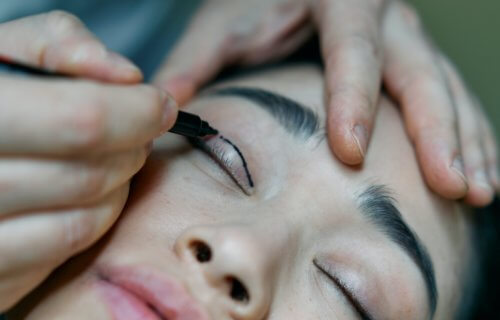🔑 Key Findings:
- Using social media and photo-editing apps shows a link to wanting cosmetic surgery.
- “Selfie culture” appears to be playing into the desire to undergo cosmetic procedures.
- Researchers discovered a surge in social media use during the pandemic.
BOSTON — More people were inquiring about cosmetic surgery and other cosmetic treatments during the COVID-19 pandemic. Now, researchers from the Boston University Chobanian & Avedisian School of Medicine have a potential explanation for this trend. Their study finds a link between hours spent on social media, as well as the use of photo-editing applications, and the desire to undergo cosmetic procedures.
The research team adds patients who follow and engage with celebrities and influencers on social media, in addition to following and engaging with plastic surgery, dermatology, or other accounts showcasing the results of various cosmetic procedures, significantly influence desires to have work done.
Social media platforms like Snapchat and Instagram have been pivotal to the rise of “selfie” culture. On a worldwide scale, social media use continues to increase; at least 3.5 billion people used social media in 2019. In 2018, the average adult was spending 6.3 hours daily on an internet-connected device.
Study authors stress that one of the most troubling aspects of this increased social media usage is the effect it is having on body perception and self-esteem.
The angles of “selfies” taken for social media often distort facial features in a way that promotes dissatisfaction. Medical professionals even describe a phenomenon called “snapchat dysmorphia,” whereby patients seek out cosmetic procedures in an attempt to emulate filtered and edited versions of themselves.

“While there was an increase in cosmetic focus during the COVID pandemic, until now there has not been data highlighting a clear link or factors that made patients more or less likely to participate in cosmetic treatments,” says corresponding author Neelam Vashi, MD, associate professor of dermatology at the school and director of the Boston University Cosmetic and Laser Center at Boston Medical Center, in a media release.
To start, researchers asked patients at a dermatology clinic to fill out surveys from October 2019 to June 2021 focusing on social media usage as well as personal desire to undergo cosmetic procedures. After reviewing the finished surveys, study authors uncovered that the number of hours individuals spent using Snapchat and/or Instagram every day appeared to induce a statistically significant difference in the belief that social media influenced each person’s desire to have cosmetic surgery.
Moreover, researchers discovered a statistically significant difference in the use of photo editing applications like FaceTune, Lightroom, or SnapSeed to edit photos before sharing selfies on social media and thoughts related to undergoing a surgical or non-surgical cosmetic procedure.
All in all, study authors say this study suggests that practitioners should always discuss social media usage with their patients in order to better understand why they want to undergo cosmetic procedures.
“Quality care begins with quality conversations, and we hope this study encourages providers to ask about all aspects of a patient’s life to better understand their motivations and goals of care,” Prof. Vashi concludes.
The study is published in the Journal of Clinical and Aesthetic Dermatology.
